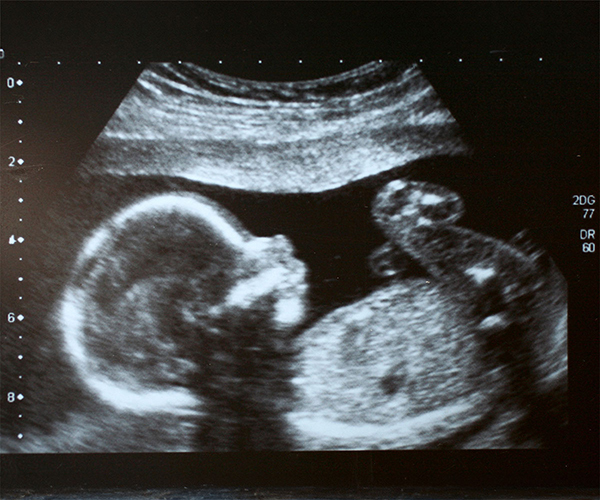
Fetal weight is estimated during pregnancy to assess the growth and health of the fetus. However, inaccurate estimates can potentially lead to unnecessary clinical recommendations, such as Cesarean delivery, or misclassification of adverse health risks. Therefore, more accurate fetal weight estimates can improve health outcomes for pregnancies.
Researchers from NICHD’s Epidemiology Branch evaluated the optimal timing of ultrasound measurements, as well as identified which fetal measurements are more likely to contribute to errors in birthweight estimates, particularly for infants at the extreme ends of birthweight (i.e., those considered small- or large-for-gestational age).
- The study team compared differences in head circumference, abdominal circumference, femur length, and estimated fetal weight between ultrasound measurements and corresponding birth measurements taken within 7 or 14 days of birth.
- The researchers found that small-for-gestational age newborns had ultrasound measurements closer to their actual birth measurements when compared to average- or large-for-gestational age newborns.
- Large-for-gestational age newborns had the largest differences between fetal estimates and newborn size, meaning that inaccurate birthweight estimates are more likely to occur in this group of infants.
- The team also reported that there is a higher error in abdominal circumference measurements when these are taken closer to birth.
- Overall, the study suggests that ultrasound measurements may be inadequate to predict birthweight in the largest babies. The researchers suggest that future work should evaluate whether estimates may be improved by using other measurements, such as fetal growth velocity or fetal body composition, which are taken using 3-dimensional ultrasounds.
Reference
Gleason JL, Hediger ML, Chen Z, Grewal J, Newman R, Grobman WA, Owen J, and Grantz KL. Comparing Fetal Ultrasound Biometric Measurements to Neonatal Anthropometry at the Extremes of Birthweight American Journal of Perinatology DOI: https://doi.org/10.1055/a-2298-5245 (2024)
Learn more about the Division of Population Health Research (DiPHR): https://www.nichd.nih.gov/about/org/dir/dph.
 BACK TO TOP
BACK TO TOP